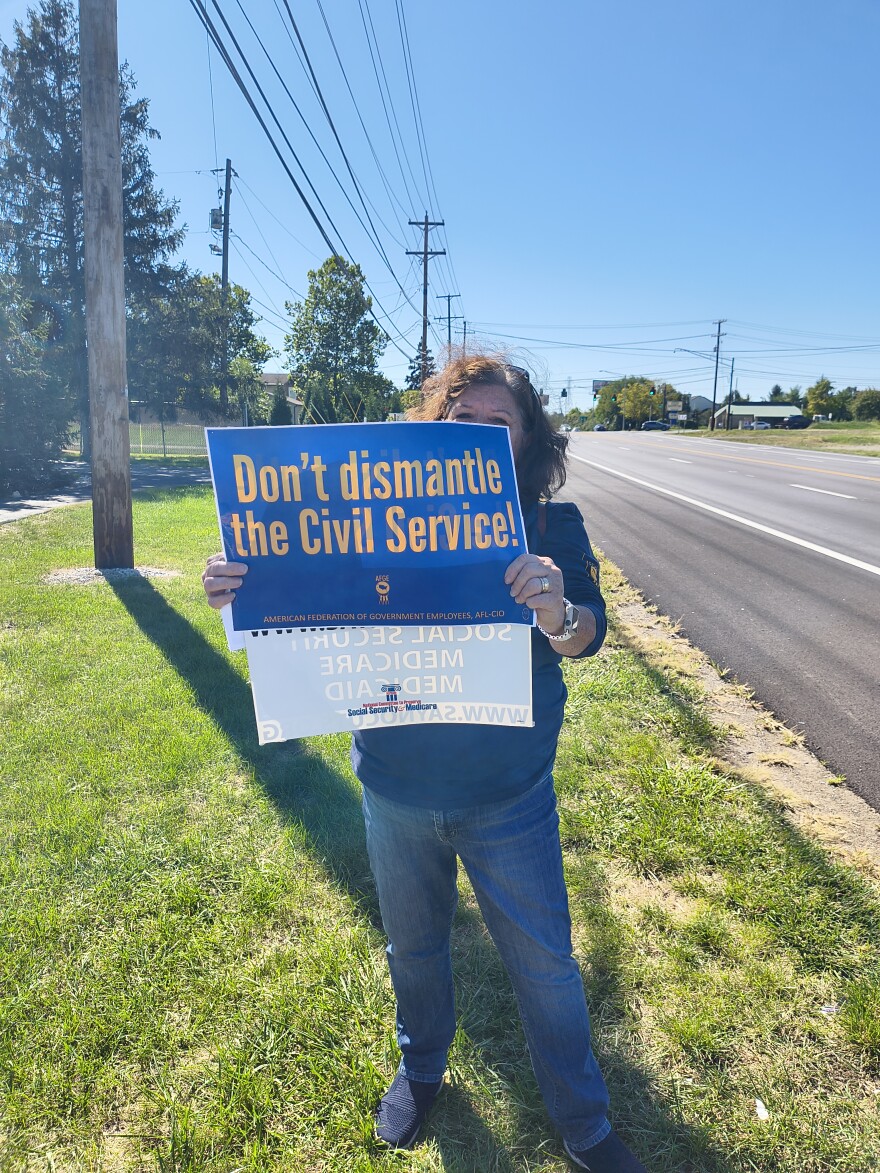Federal workers at the Social Security Office on the southwest side of Columbus are still coming to work despite not getting paid during the government shutdown.
Workers from the location on Georgesville Road stood outside on their breaks Friday to protest the shutdown as vehicles drove by, sometimes beeping their car horns to demonstrate their support.
Patti Davis-Sato represents workers at the Social Security Office through AFGE Local 3448. She retired from the Georgesville Road office.
She said workers are allowed to do some things for customers, but not others. That leads to long lines and unhappy people.
"There's certain things that aren't allowed to be done during a shutdown. And that's just atrocious. These people have paid their taxes for service from us, and we're not allowed to provide it, even though we're here," she said.
She said the government won't let them complete benefit verification letters.
"So the customers that we serve that need this information, let's say for example they have a utility that's getting shut off and they have to prove what their income is. They come in and ask us for proof. We cannot print it out. We're not allowed," Davis-Sato said.
Davis-Sato said the workers meet people at difficult times in their lives, as they try to sort out death or retirement benefits.
"We sit there and hold the hands of widows as they cry. AI can't replace that," she said.
Davis-Sato said the office is already down to nine employees from 17.

She said it appears the administration is trying to demoralize and force out workers to replace them with cheaper artificial intelligence. But, she said, employees go through 2.5 years of training to help people through the technical aspects of the social security program.
"It's not that simple," she said.
Davis-Sato said the shutdown has been traumatic for federal employees.
No matter what they do, their next paycheck is expected to come in at zero.
One worker, whom WOSU is keeping anonymous to protect her from backlash, said she reached out to inform her bank why her next payment might be late.
"They didn't care about the government shutdown," she said. "There was not many options. And so this month I'm okay not to pay my payments, because I have consistently paid my payments. But next month?"
The woman said, "They said I can only use late payment fee waivers once per year. So if this goes on for multiple months, then this will affect me, and I will be delinquent on my bills, even though there's nothing I'm doing incorrectly. I'm coming to work and just not getting paid. And it can affect my credit."
Davis-Sato said they also can't conduct fraud investigations.
"Another thing they're not allowed to do is integrity workloads. That's reviews of disability claims to make sure that there's not fraud, that people didn't go back to work when they're on disability. Those are things that it's built into the system that we regularly review to make sure that doesn't happen," Davis-Sato said. "They're not allowing us to do that during this shutdown. So, if this is all about financial and fiscal responsibility, how is it that you don't even want us to do the things that's gonna try and find the fraud that's out there?"
They can't do "redeterminations," which is an adjustment of benefits based on a change in circumstances.
Sometimes people arrive at the office after driving up Georgesville Road, or taking the bus, only to find the office can't help them because of the shutdown.
"It's sad," Davis-Sato said.






